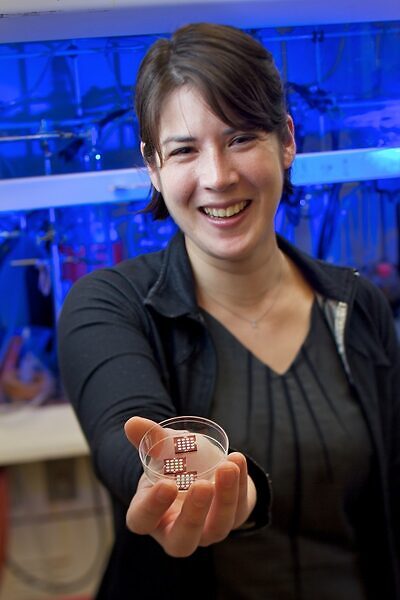Faculty Lunchtime Seminar (Prof. Christine Luscombe)

Date
Location
Description
Living electronics and fate of plastics
Organic electronics is a rising field, with novel applications including but not limited to stretchable solar cells, flexible display screens, and biosensors. The high performance of these organic electronics is enabled by the outstanding optoelectronic and thermomechanical features of organic semiconducting materials. As the field has progressed, bioelectronics has attracted increasing interest. Bioelectronics, merging manufactured electronics and biology, has emerged as a promising platform for translating electronic signals into ionic ones and vice versa, converting ionic signals into electronic signals (e.g., biosensors and ionic skins). As a result, in recent years, applications in tissue engineering, drug delivery, electrophoresis and physiology have been developed. As we look into the future of bioelectronics, “living” electronics that merge the synthetic and biological world, holds some interest.
Separate to the above, microplastics composed of various plastic and polymeric materials pose as a major global environmental issue that can cause detrimental consequences to marine organisms and across the food chain. We have been collaborating with researchers at UW to identify microplastics in marine organisms in the Puget Sound and have identified that not all organisms consume the same microplastics.
In both projects, we seek to initiate collaborations with those at OIST and look forward to initiating discussions with various units.
Subscribe to the OIST Calendar: Right-click to download, then open in your calendar application.



